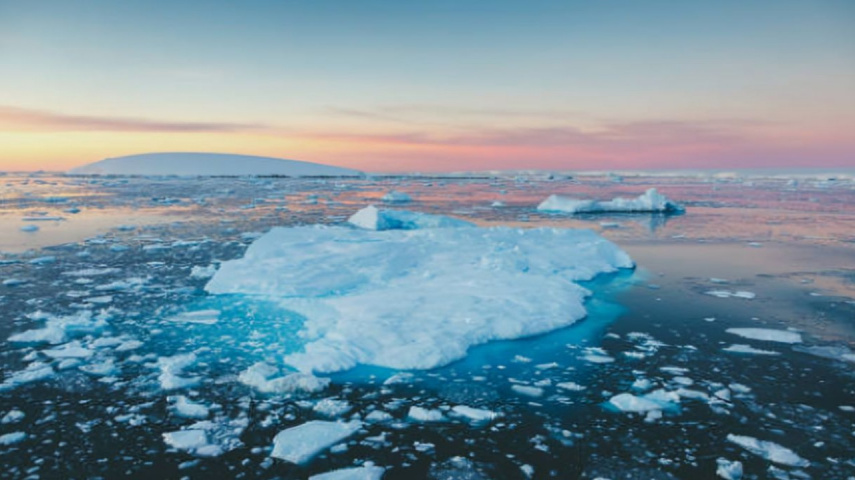Melting polar ice slows down Earth's rotation and may impact timekeeping; Deets inside
Recent research has revealed an unexpected consequence of climate change: the melting of polar ice is changing the Earth's rotation, posing potential challenges for global timekeeping.

-
Polar ice melt subtly alters Earth's rotation, posing challenges for timekeeping on a global scale
-
Agnew's groundbreaking study predicts a significant delay in the need for a leap second adjustment
Did you know that melting polar ice isn't just raising sea levels and endangering wildlife? Recent research has shown that it is also interfering with the Earth's rotation, which could cause problems for timekeeping around the world, as per NBC News.
A study published in the journal Nature discovered that as ice melts at the poles due to human-caused global warming, it alters how mass is distributed on our planet, affecting how fast it spins. It's like nudging Earth in the wrong direction, and scientists are concerned about the implications for timekeeping.
Study findings
Duncan Agnew, a geophysicist at the Scripps Institution of Oceanography at the University of California, San Diego, explains how melting polar ice is altering how things are distributed on Earth.
He goes on to say, "If you have a skater who starts spinning, if she lowers her arms or stretches out her legs, she will slow down." That affects how fast they spin. The same idea applies to the Earth: as the ice melts, our planet adjusts its posture, slowing its spin.
Thomas Herring, a geophysics professor at the Massachusetts Institute of Technology, explains it even further. He says, "As the ice melts, the water flows off towards the equator," much like water runs downhill. As a result, more stuff is piling up around Earth's center, like a belt tightening around its waist.
Impact on timekeeping
So, how does all of this melting ice affect timekeeping? Well, it turns out to be a pretty big deal. Over time, the Earth has slowed down slightly, much like a top losing its spin. To keep our clocks in sync with the stars, scientists occasionally add what's known as a leap second.

But lately, things have been a little wonky. Instead of slowing down, the Earth has been spinning slightly faster. As a result, some people have suggested that we subtract a leap second.
Agnew's study reveals some fascinating information about how melting ice affects our clocks. It turns out that, due to all of this melting, we won't need to make any changes to our timekeeping for another three years.
Initially, scientists believed they would have to subtract a leap second from our clocks by 2026. However, due to melting ice, that adjustment is no longer required until around 2029.
ALSO READ: Francis Scott Key Bridge Collapse: Rescue operation ends with six presumed dead





 JOIN OUR WHATSAPP CHANNEL
JOIN OUR WHATSAPP CHANNEL





































































































